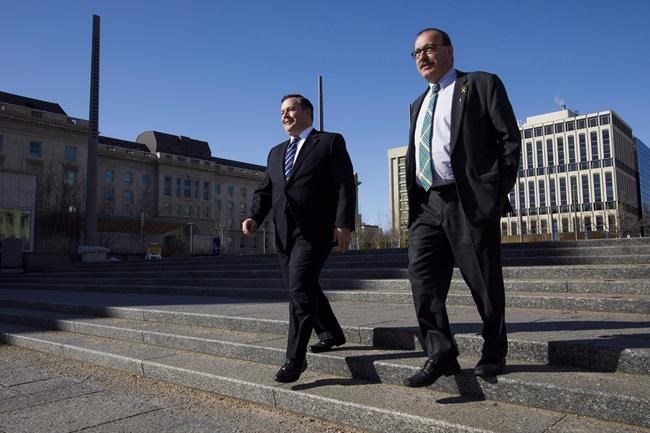EDMONTON — The Alberta government has introduced legislation that it says would help municipalities recoup some of the millions of dollars in unpaid property taxes they're owed by energy companies.
"It's a legal resource where the (municipalities) can actually seize assessable assets that exist within that municipality," Municipal Affairs Minister Ric McIver said before the bill was tabled Thursday.
"The idea is not to spur a bunch of legal action but to spur people to pay their taxes in the first place."
The legislation is a response to a growing problem of oil and gas companies, both solvent and insolvent, not paying municipal property taxes. After several years of hard times and low prices in the oilpatch, Rural Municipalities Alberta says those unpaid taxes now total $245 million — about half of which is from companies still operating.
Until 2019, municipalities were able to issue special liens on the assets of delinquent companies. That year, a court ruled such liens didn't apply to the oilpatch.
McIver said the bill not only restores the ability of municipalities to go after assets, it puts them first in line for any funds from asset sales of bankrupt companies. The lien would kick in after a 120-day notification period intended to encourage companies to come to the table and work out a payment plan.
"Right now there is no hammer," McIver said. "And those very small number of companies who could pay their taxes and are choosing not to, they need a push."
McIver acknowledged municipalities might be reluctant to give a push that could force wobbly companies into bankruptcy.
"This won't solve all the problems," he said.
"Some of the taxes owed won't get paid, some of the companies will go out of business and there won't be enough assets to pay all the bills. This, however, will be an incentive with some real consequences for those not paying their taxes to pay their taxes."
The changes would also extend for two years a program that allows municipalities to forgo their education tax allotment if their arrears are due to nonpayment from the energy sector.
However, it won't address the growing problem of private landowners not being paid rent on their land by energy companies.
In 2018, the Surface Rights Board, which adjudicates disputes between landowners and energy companies, spent $6.4 million in tax dollars to cover those debts — more than 10 times the 2014 tab. As well, the number of rent recovery applications in 2019 was 10 times the 2004-2014 average.
"We've been meeting with landowners to try and address those concerns," Energy Minister Sonya Savage said.
Savage said the United Conservative government is looking at the section of the Surface Rights Act that deals with lease negotiations. That section has long been criticized as lacking enforcement measures for non-compliance.
"I'm especially concerned about protecting the rights of landowners that haven't been paid," she said.
The Opposition NDP said the government should have addressed the problem earlier.
“The UCP government stood by for over two years when municipalities needed action," municipal affairs critic Joe Ceci said in a statement.
"Now, all they’ve done is introduce legislation that returns to an ineffective approach from the past while putting the burden and costs of enforcement on municipalities."
This report by The Canadian Press was first published Oct. 28, 2021.
Bob Weber, The Canadian Press




